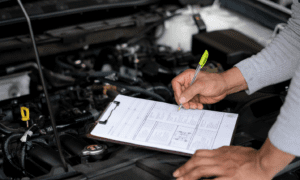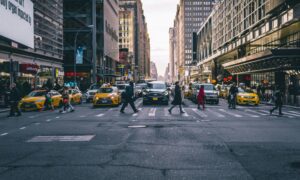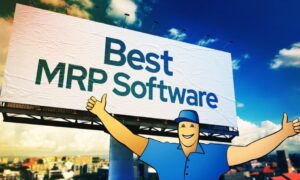Tesla’s stock surged significantly during premarket trading in the United States on Monday, following the company’s achievement of a major milestone in the rollout of its fully autonomous technology in China, according to a CNBC report.
TakeAway Points:
- Tesla has cleared some key regulatory hurdles that have long hindered it from rolling out its self-driving software in China, paving the way for a favourable result from Elon Musk’s surprise visit to the U.S. automaker’s second largest market.
- As the electric vehicle manufacturer achieves a major milestone to introduce its complete self-driving technology in China, Tesla’s shares surged substantially in premarket trade on Monday in the United States.
- Tesla has improved its Autopilot driver assistance with Full Self Driving.
- Although it is limited to some functions, such as autonomous lane changes, Tesla has been selling its FSD technology in China for a number of years.
Tesla Shares Surges
Shares of Tesla rose sharply in U.S. premarket trading on Monday after the electric car maker passed a significant milestone to roll out its full self-driving technology in China.
The company’s share price spiked more than 10% just after 7:30 a.m. ET as investors reacted to news surrounding Tesla CEO Elon Musk’s visit to China.
Elon Musk’s unexpected visit to China, the second-largest market for American automakers, went well for Tesla since it removed many significant regulatory obstacles that had long prevented the company from implementing its self-driving software there.
Tesla CEO Musk arrived in the Chinese capital on Sunday, where he was expected to discuss the rollout of Full Self-Driving (FSD) software and permission to transfer driving data overseas, according to a person with knowledge of the matter.
Teslas’s Agreement with Baidu
On Monday, a report from Reuters stated that Tesla had reached an agreement with Baidu to use the Chinese tech giant’s mapping licence for data collection on China’s public roads, which they described as a key step for FSD to be introduced in the country.
And a top Chinese auto association said on Sunday that Tesla’s Model 3 and Y cars were among the models that it had tested and found to be compliant with China’s data security requirements.
Data security and compliance have been key reasons why the U.S. electric vehicle maker, which rolled out the most autonomous version of its Autopilot software four years ago, has yet to make FSD available in China, its second-largest market globally, despite customer demand.
Chinese Regulation on Data Storage
Chinese regulators have since 2021 required Tesla to store all data collected by its Chinese fleet in Shanghai, leaving the company unable to transfer any back to the United States.
Musk is looking to obtain approval to transfer data collected in the country abroad to train algorithms for its autonomous driving technologies, the person said.
Equity analystautomakers,h called the surprise visit “a major moment for Tesla.”
Rival Chinese automakers, such as Xpeng and Huawei Technologies, have been seeking to gain an advantage over Tesla by rolling out similar software.
Hu Xijin, a retired newspaper commentator, said on his Weibo account that Tesla was the only foreign-funded automaker to meet China’s data compliance requirements and said that this would pave the way for Tesla cars to enter premises owned by government agencies and state-owned firms across China.
“This is not only a breakthrough in China, but also a significant demonstration for the entire world in solving data security issues,” he said.
Tesla cars have for years been banned from entering Chinese military complexes over security concerns relating to cameras installed on its vehicles. Its cars have also been turned away from sites holding important political events, such as an annual summer leadership conclave the ruling Communist Party held in 2022.
Chinese Data
The improved prospect of FSD entering China comes as Tesla shares have lost almost a third of their value since the start of the year, as concerns have grown about the EV maker’s growth trajectory. Last week, Tesla reported its first decline in quarterly revenue since 2020, when the COVID-19 pandemic slowed production and deliveries.
Musk said last week that Tesla would introduce new, cheaper models using its current EV platforms and production lines and would offer a new “robotaxi” with self-driving technology. He said on X this month that he would unveil the robotaxi on Aug. 8.
China’s complicated traffic conditions, with more pedestrians and cyclists than in many other markets, provide more scenarios that are key for training autonomous driving algorithms at a faster pace, according to industry experts.
“If Musk is able to obtain approval from Beijing to transfer data collected in China abroad, this would be a ‘game changer’ around the acceleration of training its algorithms for its autonomous technology globally,” Wedbush analyst Dan Ives said in a note.
Musk said this month that Tesla may make FSD available to customers in China “very soon,” in response to a query on X.
Tesla Meets with Chinese Premier
Musk’s trip to China has so far involved a meeting with Chinese Premier Li Qiang, who praised Tesla’s development in China as a successful example of U.S.-China economic and trade cooperation, and the organiser of the ongoing Beijing auto show.
The chairman of Chinese battery giant CATL, Robin Zeng, a key Tesla battery supplier, also visited Musk’s hotel in Beijing on Monday, according to a Reuters witness. Reuters could not immediately confirm with CATL if Zeng met with Musk.
Musk’s visit to China, first reported by Reuters, was not flagged publicly and the person spoke on condition of anonymity because they were not authorized to speak with media. Tesla has not responded to requests for comment.



































